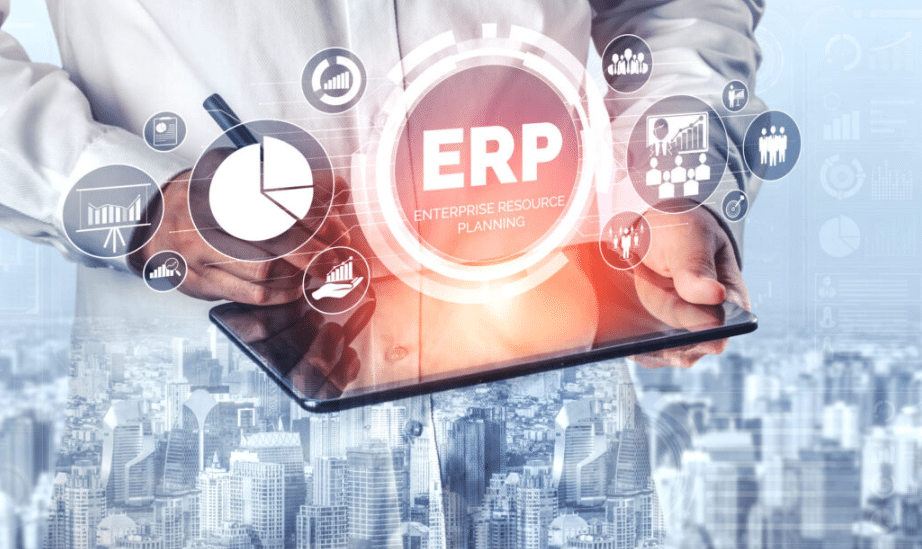NetSuite ERP Pricing: Understanding Costs and Value Proposition
In today’s fast-paced business environment, companies of all sizes seek efficient ways to manage their operations. Enterprise Resource Planning (ERP) systems are essential for integrating various business processes. NetSuite stands out among the leading ERP solutions for its comprehensive features and scalability. However, understanding the pricing of NetSuite ERP can be complex due to various factors influencing the total cost. This article aims to demystify NetSuite ERP pricing and provide insights into its value proposition.
What is NetSuite ERP?
NetSuite ERP is a cloud-based business management software suite that helps organizations manage their core business processes. It integrates accounting, inventory management, order processing, and supply chain management into a single system. NetSuite ERP enables businesses to make informed decisions and streamline their operations by providing real-time visibility into operational and financial performance.

Critical Components of NetSuite ERP Pricing
NetSuite ERP pricing is influenced by several key components:
- Base License Fee: The base license fee is the foundational cost of using NetSuite ERP. This fee typically covers the core platform and essential modules required for basic business operations. The base license fee is usually billed annually and can vary depending on the size and complexity of the organization.
- Add-On Modules: NetSuite offers various add-on modules catering to specific business needs. These modules include advanced financials, inventory management, CRM, e-commerce, and more. Each module’s pricing is added to the base license fee. Businesses can choose the modules that best suit their requirements, allowing for a customized ERP solution.
- User Licenses: The required user licenses are another significant factor in NetSuite ERP pricing. User licenses determine how many individuals within an organization can access the ERP system. NetSuite offers different user licenses, such as full access, limited access, and employee self-service, each with its pricing structure.
- Implementation and Support Costs: Implementing NetSuite ERP involves additional costs beyond the software licenses. These costs include consulting fees, data migration, customization, and training. The complexity of the implementation project can significantly impact the overall price. Additionally, ongoing support and maintenance fees are essential to ensure the system runs smoothly and stays up-to-date.
Deployment Options and Their Impact on Pricing
NetSuite ERP offers two primary deployment options: cloud-based and on-premises. Each option has its pricing model and associated costs.
- Cloud-Based Deployment: Cloud-based ERP systems, like NetSuite, are hosted on the vendor’s servers and accessed via the Internet. This deployment model typically follows a subscription-based pricing structure with monthly or annual fees. Cloud-based ERP systems generally have lower upfront costs than on-premises systems, making them more accessible for small and medium-sized businesses. However, the total cost of ownership (TCO) over time can be higher due to ongoing subscription fees.
- On-Premises Deployment: ERP systems are installed on the company’s servers and managed internally. This deployment model involves higher upfront hardware, software licenses, and infrastructure setup costs. However, it can offer more control over the system and potentially lower long-term costs, as no recurring subscription fees exist. Large organizations with specific security and compliance requirements often prefer on-premises deployment.
Factors Influencing NetSuite ERP Pricing
Several factors can influence the overall cost of NetSuite ERP:
- Company Size: The organization’s size, measured by the number of employees and annual revenue, can impact pricing. Larger companies typically require more user licenses and advanced modules, leading to higher costs.
- Business Complexity: The complexity of the business processes and the level of customization needed can affect pricing. Companies with intricate workflows and unique requirements may incur higher implementation and customization costs.
- Geographic Location: NetSuite ERP pricing can vary depending on the business’s geographic location. Local regulations, currency exchange rates, and regional support availability can influence the overall cost.
- Industry-Specific Needs: Certain industries, such as manufacturing, retail, and healthcare, may require specialized modules and features. NetSuite offers industry-specific solutions that cater to these needs, which can impact pricing.
Calculating the Total Cost of Ownership (TCO)
When evaluating NetSuite ERP pricing, it’s essential to consider the total cost of ownership (TCO). TCO includes all direct and indirect costs associated with the ERP system over its lifecycle. Direct costs encompass software licenses, implementation fees, and ongoing support expenses. Indirect costs may include training, system upgrades, and potential downtime during implementation.
To calculate TCO, businesses should:
- Assess Initial Costs: Evaluate the upfront costs of software licenses, implementation, and customization. Consider any additional hardware or infrastructure investments required for on-premises deployment.
- Estimate Ongoing Expenses: Account for recurring subscription fees (for cloud-based deployment), support and maintenance costs, and future upgrades or enhancements.
- Factor in Indirect Costs: Consider the potential impact on productivity during the implementation phase and the costs of training employees and adapting to the new system.
The Value Proposition of NetSuite ERP
While the pricing of NetSuite ERP may seem substantial, it’s essential to consider the value it brings to the organization. NetSuite ERP offers several benefits that can justify the investment:
- Improved Efficiency: NetSuite ERP helps businesses operate more efficiently by automating core business processes and providing real-time insights. This can save costs, reduce manual errors, and improve decision-making.
- Scalability: NetSuite ERP is designed to grow with the business. As companies expand, they can easily add new modules and user licenses to accommodate their evolving needs.
- Enhanced Visibility: With a unified view of financial and operational data, businesses can gain better visibility into their performance. This enables proactive management and strategic planning.
- Global Reach: NetSuite ERP supports multiple languages, currencies, and subsidiaries, making it an ideal solution for businesses with global operations. It simplifies compliance with international regulations and facilitates seamless cross-border transactions.
Conclusion
Understanding NetSuite ERP pricing involves considering various factors, including base license fees, add-on modules, user licenses, and implementation costs. Businesses must evaluate their needs and budget constraints to determine the most suitable deployment option and pricing model.